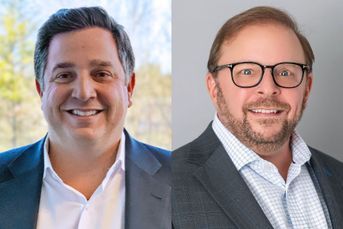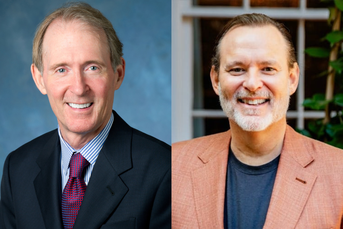Warnings from financial advisors grow with Mega Millions jackpot

With the pool for Friday’s draw having grown to an estimated $560 million, advisors urge anyone experiencing a windfall to proceed cautiously.
What’s the first thing you should do if you’re lucky enough to win the more than half-a-billion dollar Mega Millions jackpot later this week?
Ask any financial advisor and they’ll give you the same answer: “Nothing.”
At least in the beginning.
Since no one has come forward with a winning ticket for Tuesday night’s Mega Millions drawing, the pool has grown to an estimated $560 million, or $281.1 million if it’s taken as a lump sum, making it one of the top 10 largest Mega Millions jackpots ever. The largest jackpot ever awarded was $1.54 billion in October 2018.
The next chance to win the Mega Millions jackpot is Friday.
Of course, the odds of winning the grand prize are slim, at about 1 in 303 million, according to Mega Millions. So that $2 ticket is more of an invitation to dream than an investment.
Furthermore, even beating those mind-bending odds doesn’t guarantee happiness or long-term financial security. According to the Certified Financial Planner Board of Standards Inc., nearly one-third of lottery winners eventually go bankrupt.
But let’s say the gods do smile upon you on Friday and that last lottery ball falls your way. Or, more realistically, what if you suddenly come into a large sum of money in some other manner, like an inheritance, a signing bonus or the sale of a business? What’s your plan for the windfall?
“The first thing we recommend if our clients experience a sudden and unexpected windfall of money is to do nothing,” said Brian Hartmann, partner at Granite Bridge Wealth Management, part of Osaic. “When a large amount of money is received, life and the decisions that need to be made all seem to hit the fast-forward button. Families should plan to step back from their normal day-to-day activities and spend time purposefully thinking about what is important to them with their newfound wealth.”
Hartmann recommends taking a trip to a peaceful place where you can concentrate on yourself, your family values and ambitions without distractions or the influence of others. That’s because with the new ability to fund projects, help friends and relatives, and purchase lavish items, it’s tempting to “do it all,” which often leads to poor financial conditions shortly after.
Oh, and if you do hit that jackpot, or come into serious money some other way, Hartmann also recommends shutting up about it.
“Another mistake is sharing the news of your newfound fortune with too many people,” he said. “This can lead to change in the relationships you have with your friends and family. Once-genuine relationships can often change. Our general rule of thumb is if they don’t absolutely need to know, then they shouldn’t.”
MANAGING YOUR TEAM
Matthew Nielsen, co-founder of Kingswood Family Office, says stories of sudden wealth aren’t out of the ordinary around his office. Although he hasn’t had any Mega Millions or Power Ball winners, he certainly has been privy to tales of windfalls from athletes, entertainers and business sellers.
Sadly, many of those narratives end in financial ruin.
“The most common mistake beneficiaries of sudden wealth make is they fail in implement tax mitigation strategies,” Nielsen said. “Whether the windfall is taxable income or capital gains, it is critical to build a team that includes a tax advisor, an attorney and wealth management professionals. By reducing your tax liability, you can potentially increase the amount of money available for your legacy planning.
“Think of yourself as an owner of a sports franchise — you need your GM, coaches and players in place before you play your first game,” he continued. “In your financial life, you need your wealth manager, CPA, tax advisor, attorney and insurance representative. These are not a bunch of individuals whom you meet independently. They all work in concert with one another to ensure your legacy is protected.”
To complete the sports team analogy, the windfall winner not only needs a team, but a game plan as well. Or in this case, a financial plan.
Karin Alvarado, managing partner at New Aspect Financial Services, which is part of Osaic, says the lack of a financial plan is often the biggest mistake leading to the newly minted millionaire’s undoing.
“People that don’t have a plan can make knee-jerk reactions that are caused by ‘freak-out risk’ and let their emotions get the best of them. They don’t have a process for how they spend, invest or use their money, and this can lead to windfalls gone wrong,” Alvarado said.
Emotions and the potential to freak out will certainly be amplified with the size of the windfall. The correlation is fairly direct, according to Homer Smith, private wealth advisor at Integrated Partners.
“If the family has strong shared values and good communication, these windfalls are very positive events,” Smith said. “If there is a lot of dysfunction in the family, or if there are bad spending habits or substance abuse, and a windfall comes in, it almost always results in these problems being made worse.”
ABOUT THOSE EMOTIONS
Statistically speaking, most windfalls are not of the Mega Millions variety that create a multi-multimillionaire overnight. Chloe Wohlforth, partner at Angeles Wealth Management, often works with clients expecting to receive a once-in-a-lifetime windfall. She acknowledges that this is usually a multiyear process since there are often actionable items in the years leading up to the event.
The topics she covers with clients preparing for an infusion of wealth are both analytical, like taxes and estate planning, and emotional, like “wealth guilt.”
“The sudden inheritance of a large sum of money that was not earned often makes the recipient feel guilty, not fortunate. It also generally changes the individual’s relationships with friends and community, and often not for the better. In these situations, our job may be to assuage these feelings by developing a comprehensive plan of effective philanthropy, often involving family and community,” Wohlforth said.
“The biggest mistake is that people assume the impact of the windfall will solve a lot of problems when often the windfall can create as many problems as it solves,” she said. “That is one of the reasons you need an advisor in place to help navigate the different aspects of your financial picture that are impacted since everything is linked.”
HOSPITALS, DENTISTS AND MEMORIES
Whether it be from a lottery win or a real estate liquidation, any liquidity event must be treated carefully and as if it will never be repeated, said Emily Lapp, chief operating officer at Tanner Creek Capital at Stifel Independent Advisors. Preservation of the principal and income replacement are paramount in her view, and the goal should be the same: to enhance your lifestyle and leave a legacy for future generations or for charity, depending on an individual’s criteria.
“We had a client who recently sold a hospital, and we were able to replace almost all the rental income with tax-free bonds to save a bundle on the taxes she was paying and maintain the principal value,” Lapp said. “A practice that specializes in income-oriented investments and tax efficiency is important to retain the value.”
Reese Harper, CEO of advisor technology provider Elements, often advises dentists collaborating with their parents, who are also dentists. This partnership frequently results in a significant, one-time inheritance for a professional in their 40s or 50s. As a result, his clients tend to be responsible and accomplished adults who don’t rely on this windfall for their financial stability.
His advice to them? Think less about acquiring an asset and more about an enriching and memorable experience.
“Use part of this money to create an unforgettable experience with the people you love. Construct a memory that will bring a tear to your eye as you recall it on your deathbed, assuring you that you’ve lived a fulfilled life,” Harper said. “Whatever image that brings to mind for you, just go for it. I guarantee you won’t regret it.”
Traits and technologies advisors need to know before going solo
Learn more about reprints and licensing for this article.








